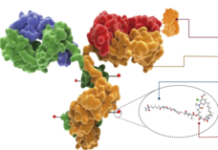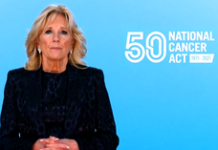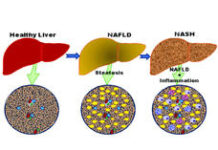
Today the UK Government has set out their plans for ‘levelling up’, how they will help parts of the country left behind in many ways to catch up on a range of measures, including health.
An important place to start will be tackling cancer disparities across the country.
We’ve written before about how people from more deprived areas are more likely to get cancer, have more trouble accessing cancer services, and are less likely to survive their cancer.
Today’s plans from the Government gave a number of positive signs. There was a commitment to tackle core drivers of health inequalities like smoking and obesity – which both increase cancer risk – and cancer itself as a major cause of ill health. There are some positive signs on research too.
However, while the intentions are good, we’re still missing important details.
So – what does the Government need to do next to level up on cancer?
Tackling the unequal cancer burden
Around 4 in 10 cancer cases are caused by preventable risk factors – most importantly smoking and obesity. Smoking rates are much higher in more deprived areas, which has a major impact on health. Smoking alone accounts for approximately half of the difference in life expectancy between the most and least deprived groups in England.
Unfortunately, right now Government is well off track to with its target for a smokefree England by 2030. But even worse, for the most deprived group that milestone won’t be reached until the mid-2040s.
A recent report by Action on Smoking and Health and Cancer Research UK showed that years of cuts have contributed to variation in quality and accessibility of stop smoking services. Local authorities that had to cut these services, and now rely on the NHS, were most likely to report negative impacts from the pandemic.
How can the Government address these issues? A good start would be publishing a world-leading and properly funded Tobacco Control Plan for England. Funding for that could come by introducing a ‘Smokefree Fund’, which make the tobacco industry pay for measures to tackle smoking and help people quit, but crucially without letting them influence how the money is spent.
Obesity is another risk factor for cancer, and there’s variation there too. Evidence shows that obesity disproportionally affects people from more deprived areas and that it contributes to major health disparities. The environment people live in is a significant challenge here, with the less healthy option often the easier and cheaper choice.
There’s clear evidence for acting to prevent childhood obesity. Children who are obese are five times more likely to be obese as adults, putting them at higher risk of developing 13 different types of cancer.
The Government has shown promising signs, like committing to restricting the marketing and promotion of junk food in 2020. But 2 years on, that crucial legislation is at risk being watered down with industry-led amendments. The UK Government can’t afford to let that happen.

Copy this link and share our graphic. Credit: Cancer Research UK
Zooming out, a strong public health system is critical to tackling the unequal burden of cancer across the country. Budgets have tumbled in recent years, affecting important efforts like weight management and alcohol treatment services, and these services desperately need a funding boost.
Giving everyone the best chance of beating cancer
There are also serious differences between different parts of the country in how easily and quickly patients can access services important to cancer care – and, sadly, patients’ chances of surviving their cancer.
One important example is not having enough GPs to quickly offer an appointment to everyone who needs one. In England – where the UK Government runs the NHS – primary care in more deprived areas is relatively underfunded and under-doctored compared with less deprived areas. And with more than 6 in 10 cases diagnosed after a GP referral, any variation could have important implications for cancer diagnosis.
Sadly, efforts to reduce these geographical disparities over the last 30 years have only scratched the surface. Without action now, the gap will only widen – holding back efforts to ‘level up’ the country.
There are also major regional disparities in diagnostic capacity, with patients in some parts of the country waiting much longer than others to get key diagnostic tests. For example, endoscopy services – which help diagnose diseases including oesophageal, stomach and bowel cancers – were hit by the pandemic, but not at the same rate. Some regions, such as the North West, experienced a greater increase in waiting times and were slower to recover.

Copy this link and share our graphic. Credit: Cancer Research UK
Once patients are diagnosed with cancer, there can also be variation in treatment depending on where someone lives, for example in lung cancer, there’s regional variation in the proportion of patients receiving treatment with curative intent, ranging from 64% to 86%.
Tackling this regional variation could transform the outlook for many cancer patients. To continue with lung cancer as an example, if we levelled up all regions in England to match the best-performing area, we estimate that around 2,300 extra lung cancer patients each year in England could be diagnosed at the earliest, most treatable stages.
The NHS in England recently set out their strategy on tackling inequalities, which gave welcome emphasis to improving cancer outcomes and a focus on improving the health of the most deprived communities. The Government’s levelling up plan also repeated positive commitments made at last year’s Spending Review to invest in new ‘one stop shop’ diagnostic centres in the community.

But the greatest barrier to tackling geographical differences in access and capacity to NHS services is chronic NHS cancer workforce shortages across the country.
Three months after Government promised to outline how they’ll invest in growing the cancer workforce, but we’re still waiting for clarity on this. The longer we wait, the longer it will take to make progress in our cancer outcomes.
Putting cancer at the heart of levelling up
Just last week, Health Secretary Sajid Javid promised a new ‘war on cancer’, meant to “radically improve the outcomes of cancer patients across the United Kingdom”.
Today’s announcement on levelling up offered many positive signs that tackling smoking, obesity and cancer inequalities could be a core pillar of this work.
But with much of the detail yet to come – not least in a plan to tackle health disparities due from Government later in spring – clearly, we need to see more on how levelling up will help us reach our goals for improving cancer outcomes.
The challenge for the Secretary of State is to seize this opportunity, and make levelling up truly meaningful for the one in two of us who will get cancer in our lifetimes.
Matt Sample is a policy manager at Cancer Research UK








